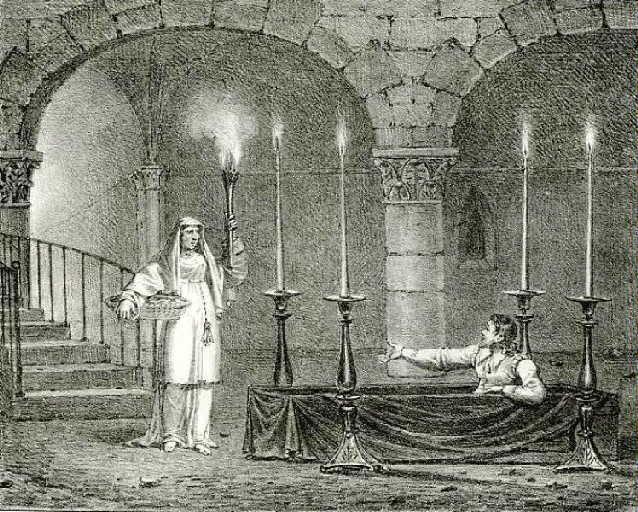
Today is the birthday of Jean de La Fontaine, who “was a famous French fabulist and one of the most widely read French poets of the 17th century. He is known above all for his Fables, which provided a model for subsequent fabulists across Europe and numerous alternative versions in France, and in French regional languages.” One of his fables is called “The Drunkard and His Wife.” It’s an odd little story about a wife who came up with a novel cure for her husband’s drinking. Why it hasn’t caught on is anybody’s guess.
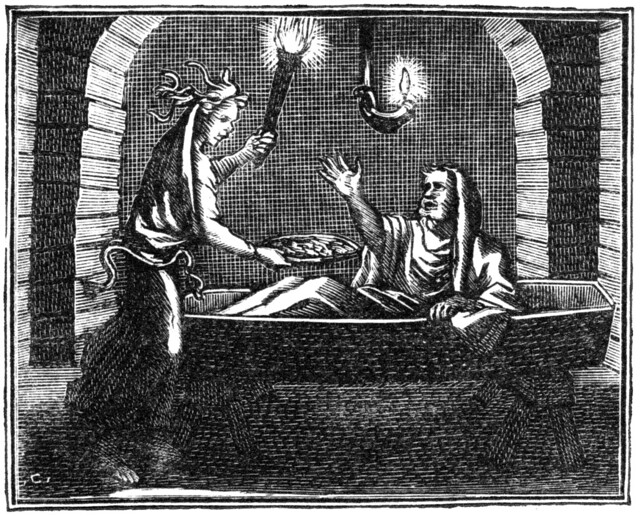
This is a modern translation, done by Craig Hill for “The Complete Fables of La Fontaine: A New Translation in Verse.”
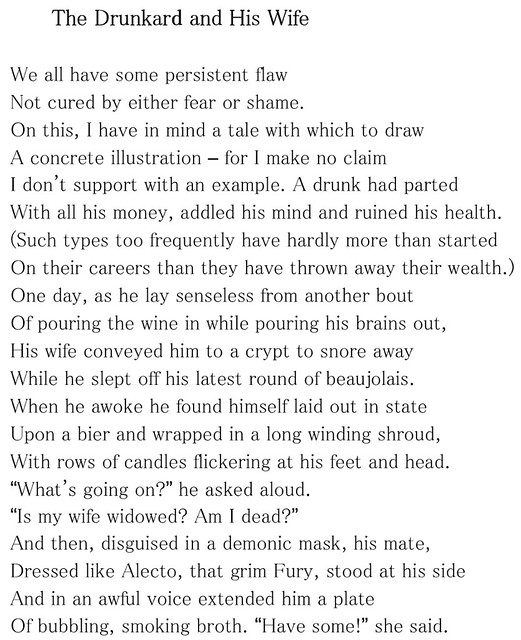
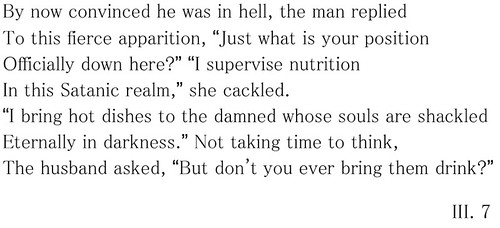
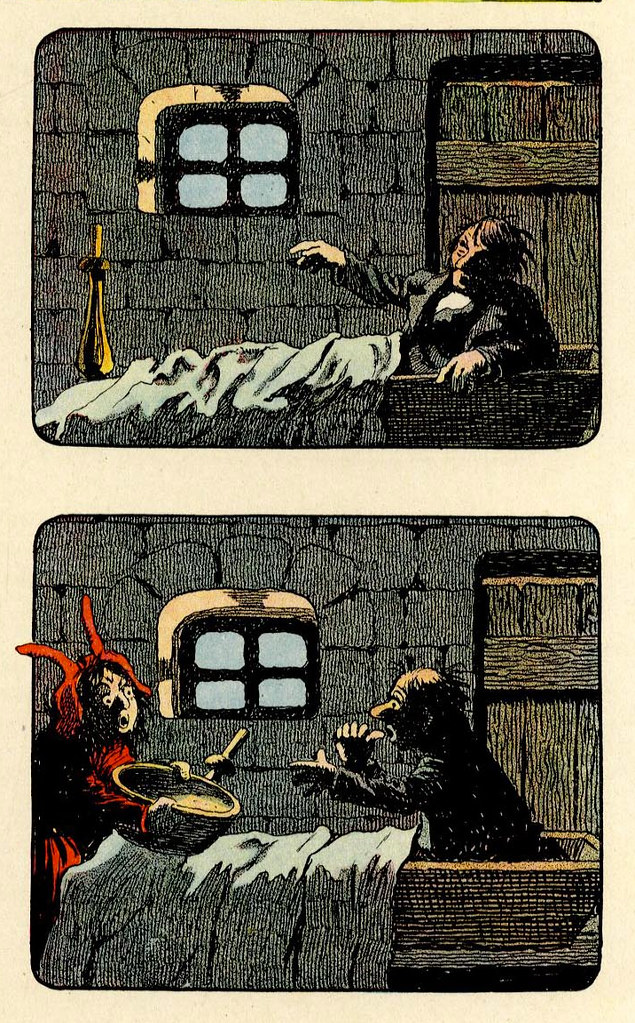
Just for fun, here’s an earlier version from 1886, translated by Walter Thornbury, and with an illustration by Gustave Doré:
FABLE LIII.
THE DRUNKARD AND HIS WIFE.
Each one’s his faults, to which he still holds fast,
And neither shame nor fear can cure the man;
‘Tis apropos of this (my usual plan),
I give a story, for example, from the past.
A follower of Bacchus hurt his purse,
His health, his mind, and still grew each day worse;
Such people, ere they’ve run one-half their course,
Drain all their fortune for their mad expenses.
One day this fellow, by the wine o’erthrown,
Had in a bottle left his senses;
[Pg 168]His shrewd wife shut him all alone
In a dark tomb, till the dull fume
Might from his brains evaporate.
He woke and found the place all gloom,
A shroud upon him cold and damp,
Upon the pall a funeral lamp.
“What’s this?” said he; “my wife’s a widow, then!”
On that the wife, dressed like a Fury, came,
Mask’d, and with voice disguised, into the den,
And brought the wretched sot, in hopes to tame,
Some boiling gruel fit for Lucifer.
The sot no longer doubted he was dead—
A citizen of Pluto’s—could he err?
“And who are you?” unto the ghost he said.
“I’m Satan’s steward,” said the wife, “and serve the food
For those within this black and dismal place.”
The sot replied, with comical grimace,
Not taking any time to think,
“And don’t you also bring the drink?”
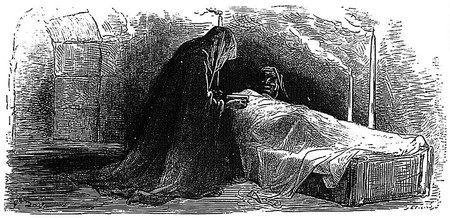
And here’s one more translation of the fable:
Each has his fault, to which he clings
In spite of shame or fear.
This apophthegm a story brings,
To make its truth more clear.
A sot had lost health, mind, and purse;
And, truly, for that matter,
Sots mostly lose the latter
Ere running half their course.
When wine, one day, of wit had fill’d the room,
His wife inclosed him in a spacious tomb.
There did the fumes evaporate
At leisure from his drowsy pate.
When he awoke, he found
His body wrapp’d around
With grave-clothes, chill and damp,
Beneath a dim sepulchral lamp.
‘How’s this? My wife a widow sad?’
He cried, ‘and I a ghost? Dead? dead?’
Thereat his spouse, with snaky hair,
And robes like those the Furies wear,
With voice to fit the realms below,
Brought boiling caudle to his bier –
For Lucifer the proper cheer;
By which her husband came to know –
For he had heard of those three ladies –
Himself a citizen of Hades.
‘What may your office be?’
The phantom question’d he.
‘I’m server up of Pluto’s meat,
And bring his guests the same to eat.’
‘Well,’ says the sot, not taking time to think,
‘And don’t you bring us anything to drink?’
